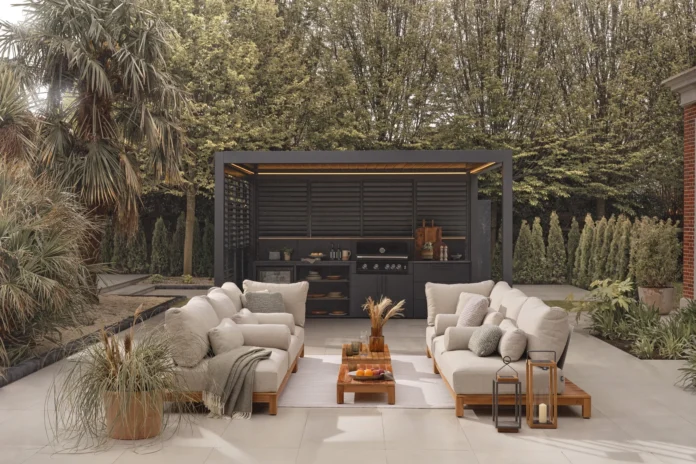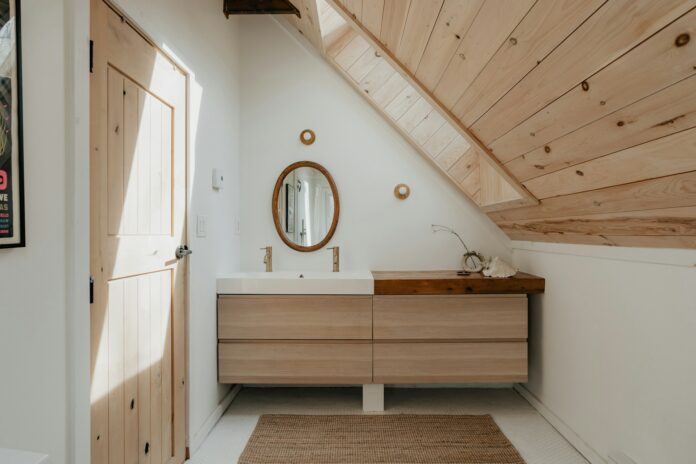Insulating your conservatory is key to keeping it warm throughout the year. Indeed, because of the UK’s somewhat, shall we say, inclement weather, many conservatory owners complain of feeling cold in their conservatories during all but a couple of months of the year. That dream of basking in the bright, warm space all year round rarely meets reality, and this is often down to poor insulation.
Since conservatories are mostly made up of glass, typically a poor insulator, they lose heat fast. Simply put, glass cannot compare to bricks and mortar in terms of heat retention; the reason why even a warm winter house can still feel cold when you’re in the conservatory. But if your conservatory was made entirely of bricks, well, it would just be another part of the house, and you’d be forfeiting the pleasure of all that light and connection with your garden.
All that spiel is a roundabout way of us emphasising the need for adequate insulation in your conservatory; a must if you want to enjoy it throughout the year. If you’re keen to luxuriate in the warmth of your conservatory even in Winter, then read on; here’s our IDEAL guide to insulating your conservatory roof.
INSTALL HIGH QUALITY PANELLING
Your roof contributes to the majority of heat loss in a conservatory, which is why those who want to insulate their existing conservatory tend to start by replacing the roof.
Generally speaking a glass roof allows a considerable amount of warm air to escape. What’s more, standard UPVC external roofs don’t generally provide adequate insulation, either.
Instead, introducing an additional layer of UPVC panelling to your conservatory roof internally should provide the desired insulation and increased thermal efficiency you’re after. Internal panels are a popular choice; made from lightweight UPVC material, these can help you achieve the kind of roof insulation that you want for your conservatory.
Panels can keep heat in and noise out more efficiently than traditional polycarbonate panels, and will also reduce glare in the room, helping to keep the temperature inside your conservatory at a pleasant level so that you can relax and enjoy the room to its full potential when you are inside it.
Alternatively, exclusive metal roofing, known for its high-quality roofing solutions, offers a great alternative to standard conservatory roofing. Installing a metal roof can significantly reduce heat loss and improve thermal efficiency in your conservatory. Metal roofs are excellent insulators and provide a durable, long-lasting solution for your conservatory.
THERMAL BLINDS AND CEILING DRAPES
During the summer, conservatories can get warm to the extent that they become unbearable. Installing thermal blinds and ceiling drapes can help insulate your conservatory during the summer, and also provide a little insulation during winter; wonderful news! It is worth noting that this insulation is far less effective when compared to the panels discussed earlier.
If you do want to install blinds and ceiling drapes in your conservatory, bear in mind that it’s a fine balancing act; excessive use of blinds and ceiling drapes can make the conservatory feel claustrophobic and even, whisper it, dingy. That is the complete opposite of what you were wanting from your conservatory, right?
Although thermal blinds and ceiling drapes may be overlooked techniques of insulating a conservatory, they are cost-effective and can help in making your conservatory feel warm and cosy when deployed thoughtfully.
SOLAR CONTROL FILM
Another way you can insulate your conservatory is by using solar control film (essentially window tints), which is an affordable and effective method to keeping the heat in. Solar control film is applied to the glass windows in your conservatory and can assist in heat retention here without eliminating that sense of being in your garden and connected to nature.
The solar film blocks UV rays and reduces glare, thus ensuring heat doesn’t build up in your conservatory. This will allow you to experience sunny days inside the room without that uncomfortable, stuffy feeling which sometimes occurs during really hot spells.
When purchasing a solar control film to use, go for a high-quality version; low-quality solar films will peel off after a few years. Generally speaking, it’s worth bringing in a professional to apply the solar control film; this should only take a day or two.
Alternatively, thermal paint (prioritise a paint which has anti-mould and anti-condensation properties) can provide a level of the insulation you need, though it’s arguably considerably less effective than those layers we mentioned above.
THE BOTTOM LINE
Despite the brightness and all round sense of summer which glass windows in a conservatory brings, it has to be said that they are susceptible to heat loss. This can be caused by the entry of cold air through crevices or the loss of heat through the roof. If you’re keen to enjoy your conservatory all year round, then we hope you found our suggestions useful.
And if you’re looking to get more from your extension, then check out these 4 working from home office ideas, from garden rooms to orangeries and beyond.





